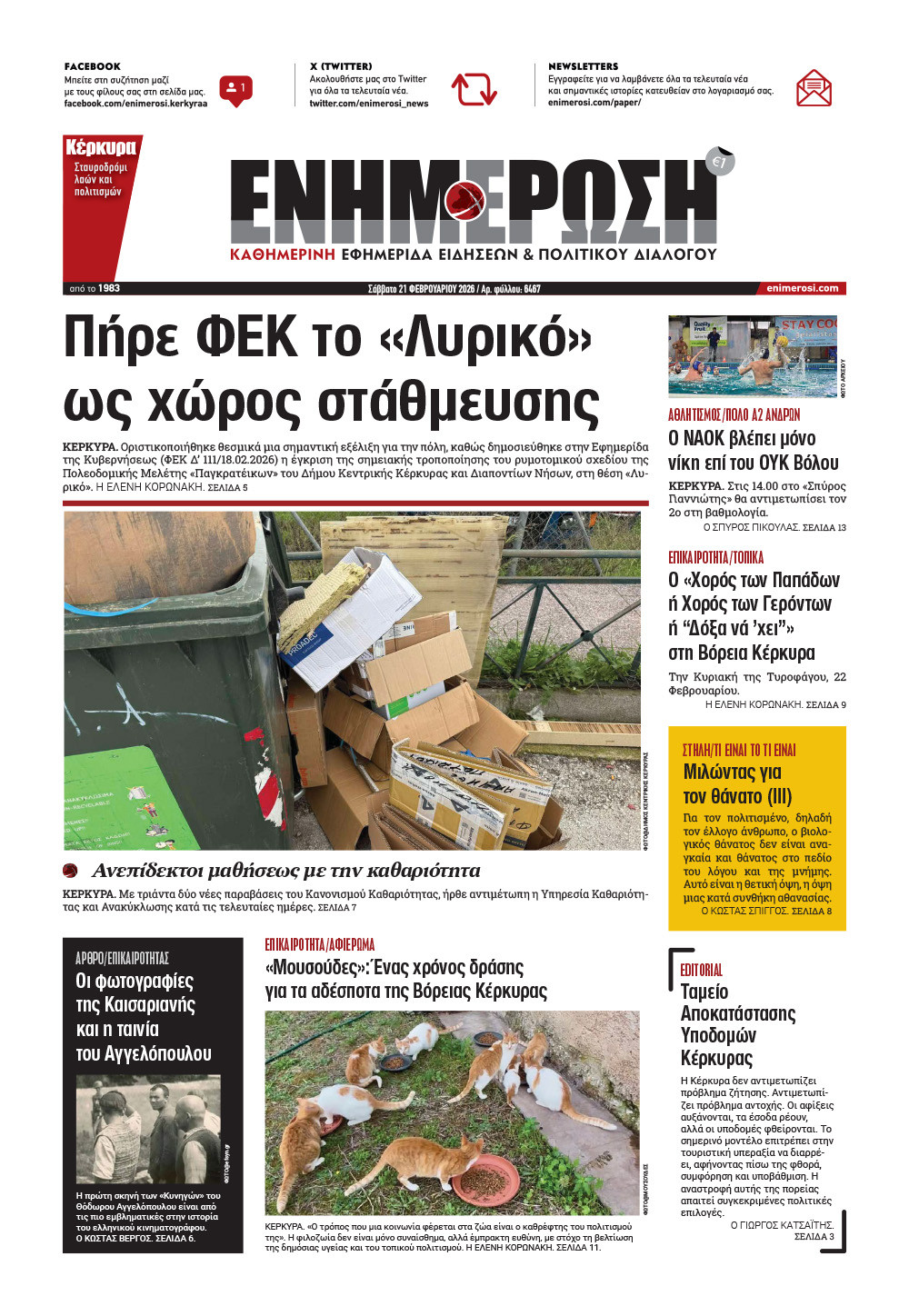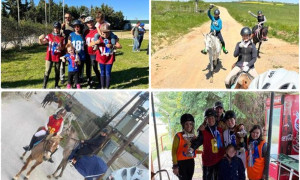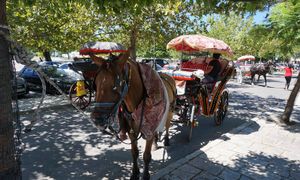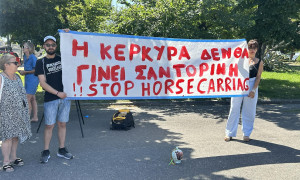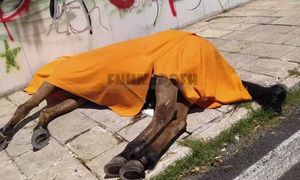A happy donkey
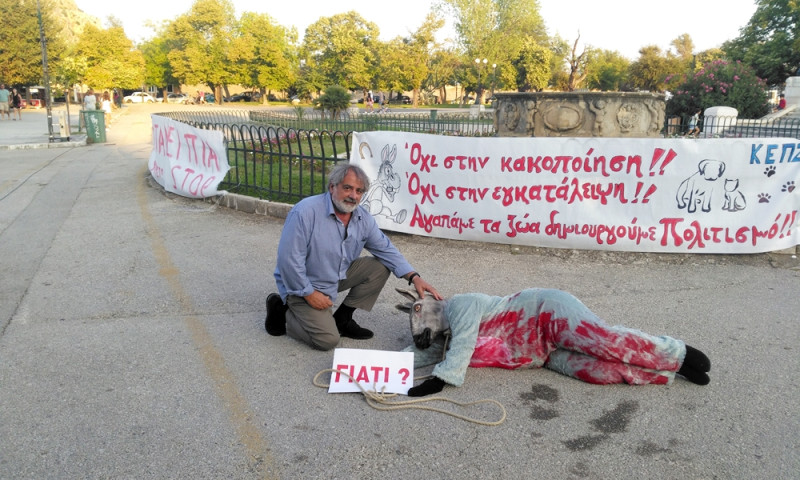
Kostas Vergos
09 Sep 2022
/ 21:50
By Kostas Vergos
In primary school we used to read about a happy donkey in one of Zacharias Papantoniou's (1877-1940) works.
Poems about cats, donkeys and other animals, large and small. About the cat that the poet himself once adopted. For the donkey that grazed in the fields of his homeland, the mountainous Karpenisi.
Empathy: the ability to understand people or animal's feelings. The most valuable lesson, that of empathy, understanding how others feel, people or animals, begins with our relationship with animals.
To feel the pain and terror of a human or a donkey (same pain, same terror) being dragged along the road of the Zitsa village as if it were a mass of lifeless iron and not a living creature asking for its suffering to stop. And then, to feel the thirst and the exhaustion of the horse that was left tied up somewhere in the cosmopolitan tourist area of Sidari, under the unbearable summer heat.
Does anyone actually believe that someone who torturs an animal will not torture a human as well? The subject here strictly defines the object as a mere object. The subject condemns the object to submission and death. The subject is indifferent to whether the object has a soul.
The object here is not a human nor an animal, it is simply an object over which the subject's absolute power is exercised and enforced. Unconditionally. Without barriers.
And it remains to be seen what will come next. Not on the screen this time, but in society.
PS: Our civilization is judged by how we treat the weak ones (No asterisks, no exceptions, no expediency).
Poems about cats, donkeys and other animals, large and small. About the cat that the poet himself once adopted. For the donkey that grazed in the fields of his homeland, the mountainous Karpenisi.
Empathy: the ability to understand people or animal's feelings. The most valuable lesson, that of empathy, understanding how others feel, people or animals, begins with our relationship with animals.
To feel the pain and terror of a human or a donkey (same pain, same terror) being dragged along the road of the Zitsa village as if it were a mass of lifeless iron and not a living creature asking for its suffering to stop. And then, to feel the thirst and the exhaustion of the horse that was left tied up somewhere in the cosmopolitan tourist area of Sidari, under the unbearable summer heat.
Does anyone actually believe that someone who torturs an animal will not torture a human as well? The subject here strictly defines the object as a mere object. The subject condemns the object to submission and death. The subject is indifferent to whether the object has a soul.
The object here is not a human nor an animal, it is simply an object over which the subject's absolute power is exercised and enforced. Unconditionally. Without barriers.
And it remains to be seen what will come next. Not on the screen this time, but in society.
PS: Our civilization is judged by how we treat the weak ones (No asterisks, no exceptions, no expediency).



